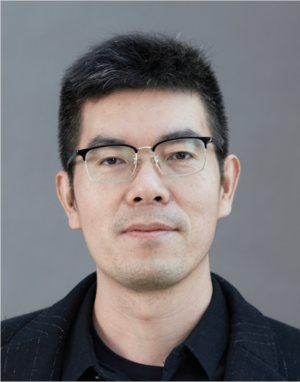Events
Nov 11, 2025
Seminar by Dr. Yong Wang; Talk tile: Seeing protein dancing over longer timescales via computational microscopy
School of Biomedical Sciences cordially invites you to join the following seminar:
Speaker: Dr. Yong Wang, College of Life Sciences, Zhejiang University
Talk Title: Seeing protein dancing over longer timescales via computational microscopy
Date: 11 November 2025 (Tuesday)
Time: 10:00 am – 11:00 am
Venue: Mrs Chen Yang Foo Oi Telemedicine Centre, 2/F, William M.W. Mong Block, 21 Sassoon Road
Host: Professor Tao Ni
Biography

Dr. Yong Wang received his Ph.D. in Biochemistry from the University of Copenhagen in 2016. He holds dual bachelor’s degrees in Computer Science and Chemistry from Jilin University, as well as a MSc degree from the University of the Chinese Academy of Sciences. In 2020, he was promoted to Assistant Professor at the University of Copenhagen. Following eight years of work and study in Denmark, he joined Zhejiang University in the summer of 2021. His research focuses on addressing fundamental biophysical questions from the perspective of biomolecular dynamics. He leverages multiscale modeling, AI-aided enhanced sampling methods, and the integration of these computational approaches—particularly with experimental data (e.g., NMR, cryoEM, mass spectrometry, SAXS, etc.)—in close collaboration with international wet labs. He is particularly interested in utilizing molecular modeling and simulations to integrate and interpret experimental data related to membrane protein nanomachines.
Abstract
The structure-dynamics-function relationship stands among the most compelling topics in biophysics and structural biology. In the post-AlphaFold era, unraveling biomolecular dynamics—a crucial bridge connecting protein structure and function—remains a major challenge. Molecular modeling and molecular dynamics (MD) simulation are highly powerful tools for understanding this relationship, as they enable direct “visualization” of microscopic motions across spatial and temporal dimensions. However, for large biomolecules, a significant gap still exists between the time scales of simulations and real-world biological processes. Integrative structural biology has emerged as a promising approach to mitigate reliance on both sampling efficiency and force field accuracy. This presentation will introduce a multiscale integrative structural biology framework—one that integrates MD simulations, experimental data, and AI-driven enhanced sampling techniques—and highlight several representative applications of this framework.
ALL ARE WELCOME.

